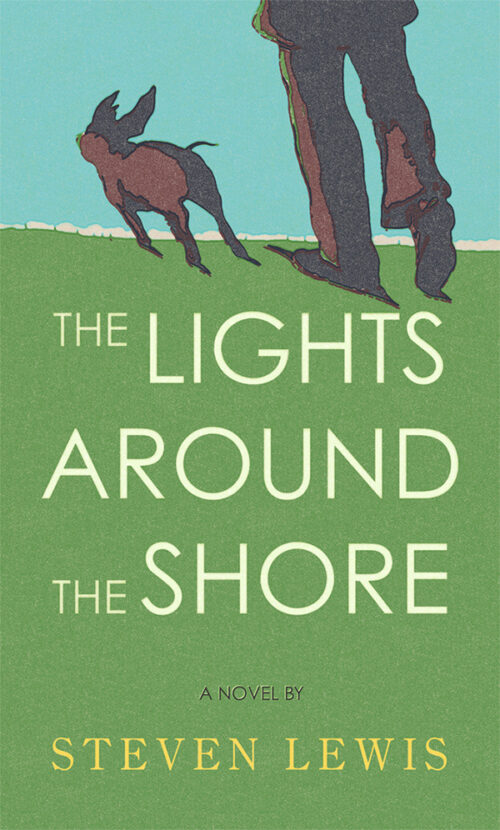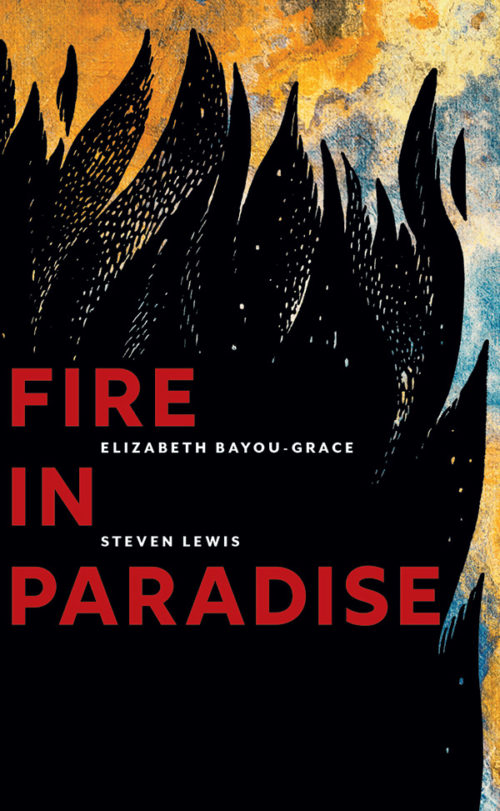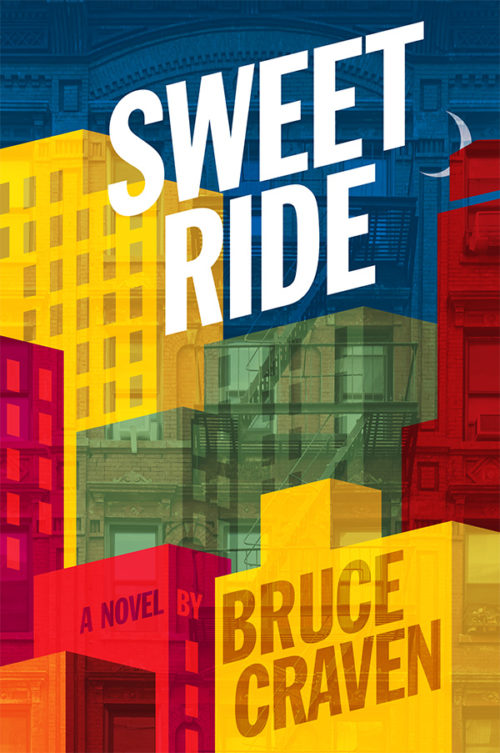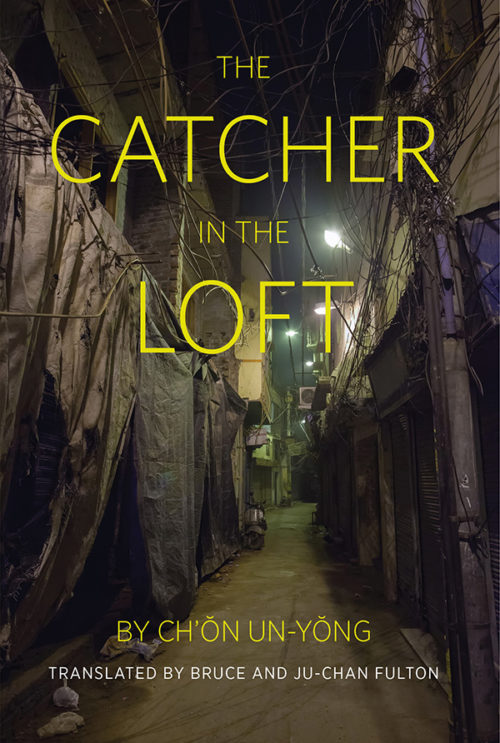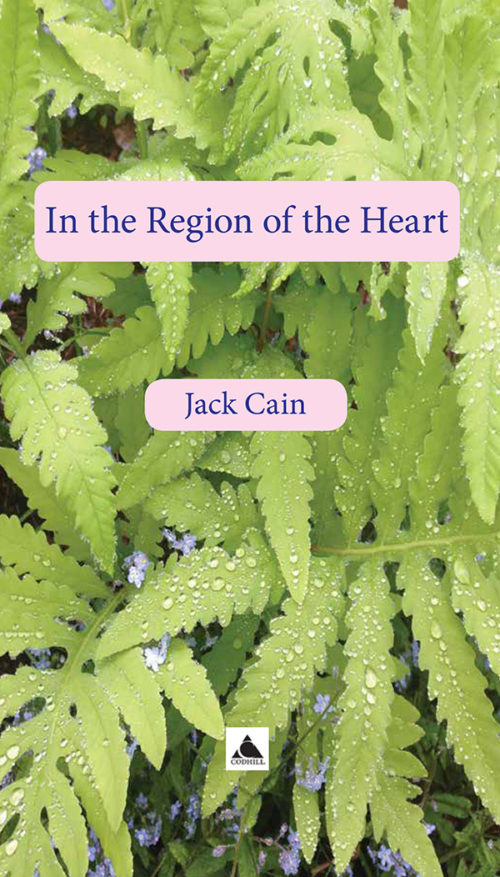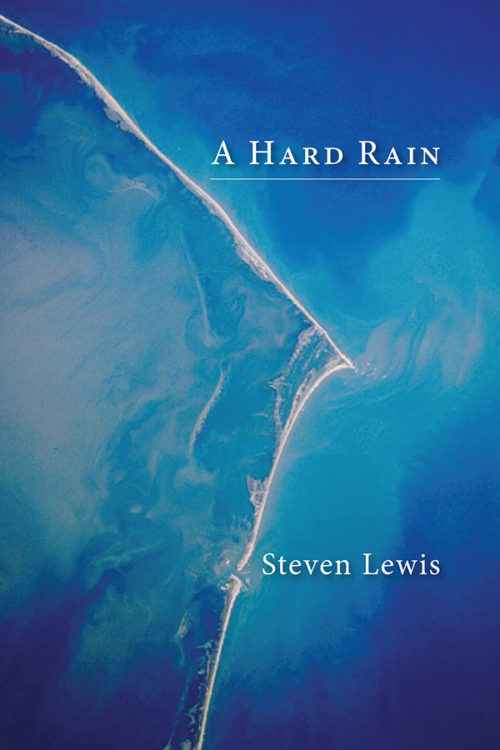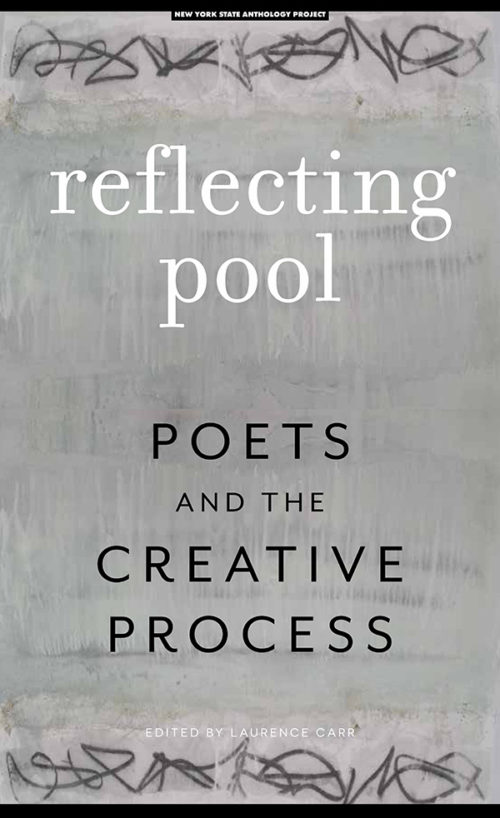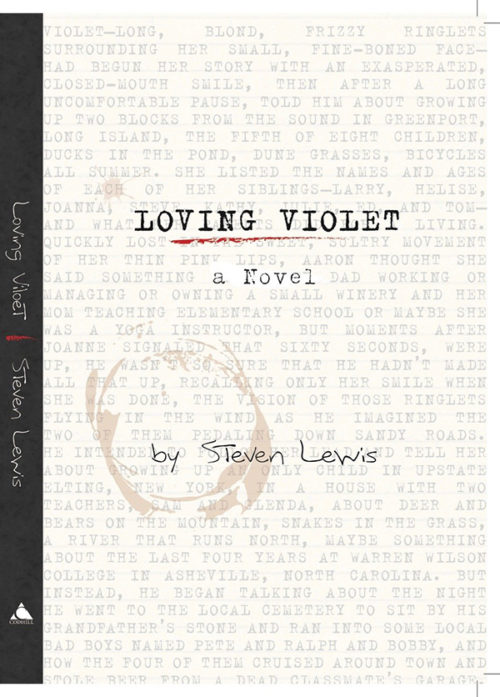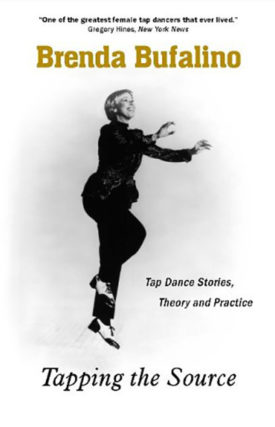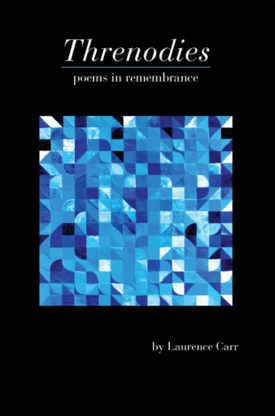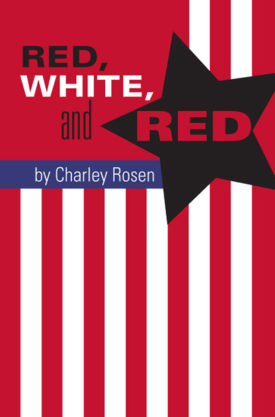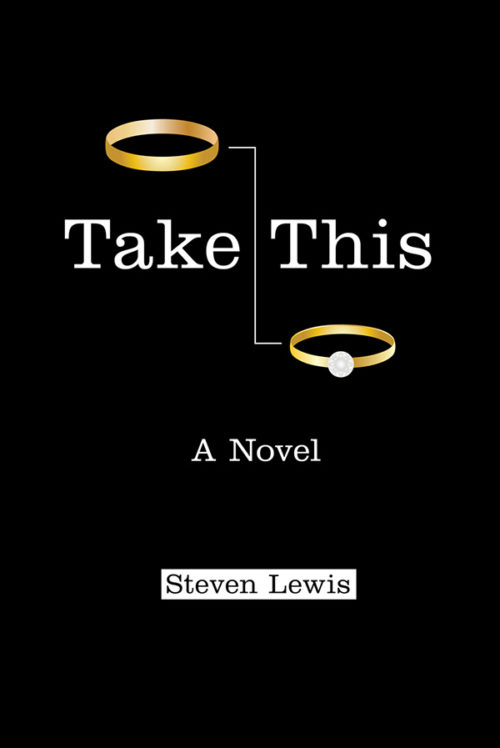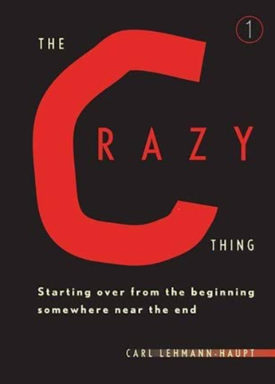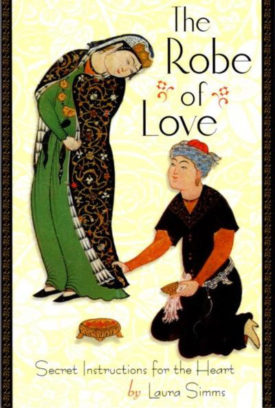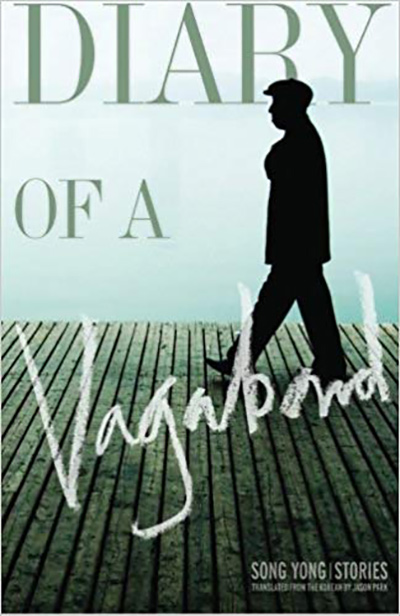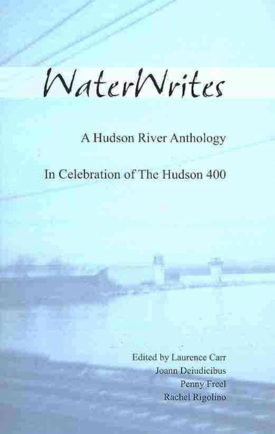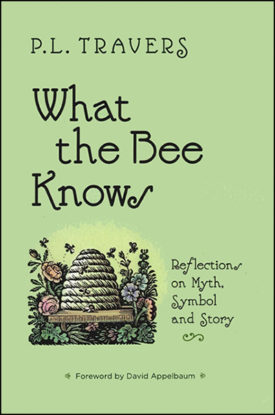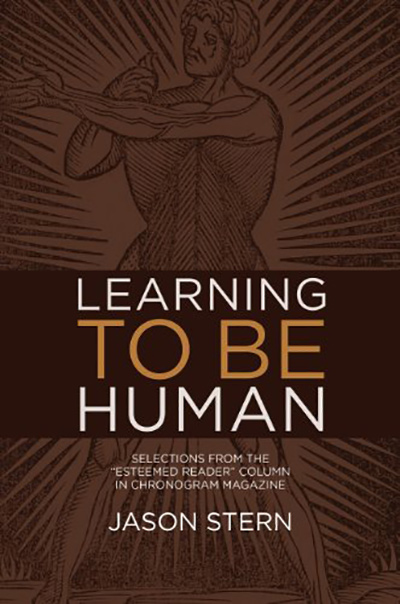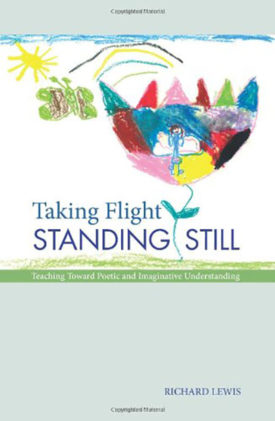-
When grumpy 75 year old Charlie Messina wakes from a coma after a cardiac event on Cape Cod, he is told that he was only unconscious for a few days. However, Charlie knows he has spent the last several months living through a parallel life that lies ahead of him. Which includes a personal tragedy, an unlikely awkward friendship with two local boys, and a road trip with his playboy best friend from college and a dog that no else sees (except the children). When he shares his story about the life he lived, his wife and grown sons think he’s crazy. He then realizes he must play along with his family—and the geriatric psychiatrist—or they’ll be convinced he’s suffering dementia and will put him into a home for “dribblers and droolers.” Steve Lewis is a former Mentor at SUNY-Empire State College, longtime member of the Sarah Lawrence College Writing Institute faculty, and longtime freelancer and editor. His work has been published widely, from the notable to the beyond obscure, including The New York Times, The Washington Post, Christian Science Monitor, LA Times, Redbook, Commonweal, Ploughshares, Narratively, Spirituality & Health, Road Apple Review, The Rosicrucian Digest, and a biblically long list of parenting publications (7 kids, 17 grandkids). He is also Senior Editor/Literary Ombudsman for the spoken word venue Writers Read. His extensive book list includes Zen and the Art of Fatherhood, Fear and Loathing of Boca Raton, If I Die Before You Wake (poems), and the novels Take This, Loving Violet, A Hard Rain, and The Lights Around the Shore (Codhill Press). A poetry collection, Fire in Paradise, co-authored with Elizabeth Bayou-Funk, was published in July 2022 by Codhill. Paperback Page count: 238 Trim size: 4.5 x 7.5 in. ISBN: 978-1-949933-23-9
-
A collection of poems written by father and daughter during the Pandemic Year 2020
“My father and I started talking about making a split collection of poetry together shortly before the pandemic began. And then he was hospitalized with Covid-19, and we all watched the world change. Together. Separately. It was then that I began to understand how important it was to share our voices in the same collection, to be read together. To not only write with him in the room, but to explicitly invite him in. To make something beautiful out of our conversation. To suffer together. To learn together. To dream of a better world.”
—Elizabeth Bayou-Grace (from the Introduction)
Paperback Page count: 80 Trim size: 5.5 x 9 in. ISBN: 978-1-949933-15-4 -
Enter the fairy-tale of pre-dawn Fifth Avenue, as ‘90s nightlife ingenue, Lilly Lejeune, strolls past Tiffany’s. Her plan is to live her own best version of the iconic Manhattan film Breakfast at Tiffany’s. The actress Audrey Hepburn is Lilly’s north-star. Up to the packed bar to order a shot of tequila in the smoke-laced neon shadows. Lilly glides from velvet-roped clubs to packed, sweaty dives, comforted by her fashion choices, her dirty martinis, the story of her glamorous rebellion and the arrangements she has with men to support her independence. But despite Lilly’s nostalgia, this is the ‘90s and the grungy, heroin-chic, pre-gentrified NYC isn’t filmed in 1961’s Eastman color film stock. In this world, the extras are cloaked in hoodies as pagers beep and votive candles flicker. This is a decade when famous models search out private spots to shoot pool, cigarettes clenched in their teeth as the jukebox clicks to Alice in Chains’ Man in the Box. Time for one more round? Hell, yeah! Because no one leaves the East Village until night fades into the searing flames of day. Much like Holly Golightly in Breakfast at Tiffany’s, Lilly, her new writer friend upstairs, George Nichols, and her dive-bar locals have a choice: hide in the neon or wake up and face the day. Join them on the streets of Manhattan and see how they face the journey of this Sweet Ride. Paperback Page count: 196 Trim size: 6 x 9 in. ISBN: 978-1-949933-07-9
-
Translators: Bruce and Ju-Chan Fulton Inspired by the case of a torture specialist in 1980s South Korea who from 1988 to 2000 was a fugitive in his own house, The Catcher in the Loft (published in South Korea in 2011 as Saenggang) is in equal parts a portrait of a man coming to terms with his notorious past and a coming-of-age story centered in his dependent relationship with his college-age daughter, who has always thought of him as a patriotic policeman. The novel begins at breakneck speed, with a victim perishing under the torture artist (renamed An)’s watch, and a hurried decision that An must take cover. The remainder of the novel is a dual narrative related in turn by the torture artist and his daughter, Sŏn, who must harbor her father in a loft above her room. There follows a counterpoint of concealment (An) and revelation (Sŏn), with the daughter discovering the “festival” of her own body during an infatuation with a university classmate, followed by the sobering knowledge, manifested firsthand in her encounter with one of her father’s shattered victims, that the father she had idolized is a sado-masochist reduced to abject dependence on her for all of his daily needs during his concealment in the loft. When the novel ends, years later, the focus is equally on An’s ultimate capitulation (he turns himself in to the authorities) and Sŏn’s awakening to her autonomy.
-
Most of these “fragments” were written by Jack Cain in group poetry sessions he was facilitating. The sessions were designed to be an exploration of the distinction between material arising from the subconscious mind as opposed to material arising from our ordinary consciousness. This direction came from G.I. Gurdjieff’s startling and impertinent statement that our subconscious is our “real” consciousness and our ordinary waking state of consciousness is “fictitious.” The group writing session would begin in quiet, participants would watch what arose and then write from that. Once everyone was done, the results would be read and there would be an exchange on what had been observed. These exchanges helped those present understand that we are all much more deeply connected than we realize.
2019 | 96 pages
-
Out of stockNobody captures the infuriating challenges or transporting joys of fatherhood like Steve Lewis. Written with honesty, humor and compassion, as well as an abiding love of the remote beauty of Hatteras Island, A Hard Rain is the masterful and compelling story of one man’s attempt to reclaim a sense of self and rebuild his family after his wife inexplicably disappears.
—Karen Dukess,The Last Book Party
“What begins—and remains—a poignant love story also immediately becomes a mystery that pulls the reader through to the very end. The family at the heart of A Hard Rain learns to reckon with a change so profound that every member is affected, as well as every reader. Lewis tells a story that moves us all, well beyond even the last word of his brilliant novel.”—David Masello, author, playwright, cultural critic, Executive Editor of Milieu magazine
Forget what you know about motherhood as you dive in to Steve Lewis’ A Hard Rain. He places you skin to skin with a family wading through grief and mesmerizes you with prose that makes you feel each carefully placed comment, each grain of North Carolina sand beneath your feet. I have seldom read such beautiful writing or felt so taken by a group of characters.—Annabel Monaghan, columnist and author of the Digit books and Does This Volvo Make My Butt Look Big?
Steven Lewis has the uncanny ability to write about your life without actually knowing you. In his latest novel, an unrelenting hard rain falls on the Hudson family. A rain shrouded in mystery that leaves each member scanning the horizon for a glimmer of sunlight. A reprieve from the squall of their lives. A beautifully observed story of a family’s search for understanding on an island with few answers, rich in heartbreaking poetic detail, by an incredibly gifted writer of whom I couldn’t be more jealous.—Peter Steinfeld, Screenwriter, Drowning Mona, Be Cool, 21
-
Reflecting Pool: Poets and the Creative Process is an innovative volume of poetry and essays by twenty-five New York State poets who teach the writing of poetry, run poetry workshops and publish the poetry of others. The book is both a poetry anthology and an informal textbook with contributing essays by each poet that offers the reader personal insights and opinions about how poetry is created, crafted, and presented. Included are a wide array of prompts and exercises that these mentors use in their classes and workshops to stimulate the creative process in poets of all ages. Also added are basic ideas about how poets can best present their work in public readings. The book can be used as the focus for symposiums on teaching the writing of poetry as well as a textbook for high school and college students, adult and senior writers, and for those who run poetry workshops or reading series. 2018 | 172 pages
-
Steve Lewis has written one of the most bewitching characters to come along in contemporary literature. Not since Scarlett O’Hara has there been such a lovable vixen. He writes such pleasurable prose, it may take some reflection to realize how much wit and wisdom he shares with his readers. In the end, I was as smitten as his hapless grad student hero. Seasoned with insider’s spice on the book business.”
—Laura Shaine Cunningham, Sleeping Arrangements, A Place in the Country
“In Loving Violet, Steve Lewis takes us to a prestigious liberal arts college, New York City, the beaches of Long Island, and Costa Rica with young writers pushed and pulled by extraordinary passion and abiding love. How do we choose—can we really choose—who we love and what we make of this life? Questions of the price of that love and what we invest in the art we make along with that love—heart-wrenching and deeply thought-provoking in this extraordinary novel.”—Jimin Han, A Small Revolution
“Loving Violet is an irresistible novel about the powers of love and art. Steve Lewis limns the inevitable progression from the heady infatuation of youth to a more settled love in later years. All the characters are vividly drawn and the writing has the clarity and grace that is characteristic of Lewis’ work.”—Angela Davis-Gardner, Butterfly’s Child: A Novel
2017 | 192 pages
-
Out of stock
Tap Dance Stories, Theory and Practice
"My work grows out of nature, like a leaf from the tree, like lichen on a stone." —Brenda Bufalino In Tapping the Source, Brenda Bufalino explores the recent history of tap dance and shares stories about her early training and professional career experiences, as well as the wisdom gleaned from her mentor, partner and collaborator, the late Charles "Honi" Coles. As a master teacher and biographical performer known for her fluid musicality and extensive vocabulary, Ms. Bufalino's stories, techniques and philosophy will inspire and encourage everyone to find the timber and rhythm of their voice, whether in tap shoes or hiking boots, on the piano or the typewriter, on a mountain trail or on the floor boards. "Brenda Bufalino is a dancer of extraordinary subtlety." —Jennifer Dunning, The New York Times "Like Nijinsky's Rite of Spring, which plunged dance into its modern form, Bufalino's global vision elevates and expands tap dancing into a concertized art." —Constance Vallis Hill, Attitude Magazine "Brenda Bufalino is a terpsichorean marvel...we are transported into a sublime musical environment that is completely mesmerizing." —Jo Sagolla, Back Stage2004 | 238 pages
-
Out of stockPoems of Remembrance A journey through time and place with stops to visit Madame Curie, Charlie Parker, Scheherazade, Madame Bovary, Lee Harvey Oswald’s coffin and God among others.
2016 | 76 pages
-
Charley Rosen is the co-author with Phil Jackson of Maverick (1975) and the New York Times bestseller More Than a Game (2001). As a player at Hunter College, Rosen set numerous scoring and rebounding records, and has subsequently coached several teams in the Continental Basketball League. He has a Master’s degree in Medieval Literature and has written more than a hundred articles for publications ranging from the New York Time Book Review to Men’s Journal, plus thousands of pieces for sports websites. His previously published books include six novels and twelve works of non-fiction. He lives with his wife Daia in upstate New York.
2016 | 280 pages
-
Out of stockOh, the complications of love, marriage, family! They’re all here in Take This. Steven Lewis handles his characters with gentleness and insight. If only all our faults could be judged by someone as compassionate as Steven Lewis.
—Ellen Bass, Like a Beggar
Steve Lewis knows that for many in the boomer generation, the Merry Pranksters’ bus is now a Winnebago. But he also knows that the thrill of the trip is undiminished, the route, quite possibly, just as insane, the destination equally unknown. Along the way, Lewis documents—with tenderness, insight, and outright hilarity—all those ways in which the volatile forces and unpredictable circumstances that forge family bonds may be stronger than the errant behaviors that sometimes fray them.—Akiko Busch, The Incidental Steward: Reflections on Citizen Science
Take This is a soulful gem of a novel, chronicling the last days of Robert Tevis, a psychotherapist with a big heart and no regrets. At turns funny and tender, author Steven Lewis takes readers on end-of-life road trip that leads them into territory that redefines love.”—Sally Koslow, The Widow Waltz
2015 | 234 pages
-
Visiting a school for disabled boys, the future Princess Diana singles out wheelchair-bound Alex to dance with—a five-minute encounter that colors the rest of his life, though quickly forgotten by her. Alex, a survivor of severe school bullying, thinks constantly of the tall girl with blue eyes—until one day he sees her on television, the new fiancée of Prince Charles. Alex’s story interweaves with Diana’s final day before her fatal accident in the late summer of 1997. In the unsatisfying company of her billionaire boyfriend she careens from one luxurious, alien Paris location to another, tormented by paparazzi. All day she tries to reach a friend in London, hoping to hear news that will bring a new direction to her life. “Dancing with Diana is a beautifully-wrought story that takes us deep into two hard-to-imagine worlds. Alex, a bright young man with cerebral palsy, has his destiny intertwined, in double-helix fashion, with Princess Diana. The latter we meet in her last few hours, and Alex we accompany from childhood through manhood. His ungainly yet triumphant progress towards self-acceptance and independence has an extraordinary echo in Diana’s own brave, doomed search for an authentic life. This is a very fine book that side-steps clichés about celebrity to create a new awareness of Diana, and also gives us a startling sense of life lived strongly and meaningfully with cerebral palsy.” —Dan Yashinsky, author of Tales for An Unknown City and The Storyteller at Fault
2015 | 160 pages
-
Out of stockThe Crazy Thing tries to respond to this endless question. It is a love story entwined with a philosophic quest. Beginning from the question about dying it goes on to explore some ways in which it might be possible to begin over again, and perhaps still learn how to live ‘somewhere near the end.’ The Crazy Thing is a memoir with three themes: the story of the author’s long love affair with the poet Celestine Frost; the drama of his enigmatic calling as an artist, writer, and thinker; and his lifelong search for the incalculable limits of the self. The Crazy Thing is a work in progress, whose outcome is yet to be known. This first small volume will be followed by several more. It contains an invitation to the reader to post their questions, comments, and refutations regarding the book’s conclusions on a website — thecrazything.net. The author will take into account the most pertinent of those challenges to his understanding as he composes the subsequent installments. In the end, the book will be a work of collaboration between the author and the community it creates. The Crazy Thing is an artist’s book, composed of drawings, photographs, and fragments of text. The fragments describe events from the author’s past, which alternate with journal entries from the present, in which the old man confronts the younger man he once was. The book is made up of many pieces, but all of them point to one conclusion — the picture of a man in search of his full stature. As for the Crazy Thing itself no one can tell what it is. It is the X-factor that can’t be named because it is not a thing among the things of the world. Nor is it a power. Anyone may feel its inexplicable influence, but they will search in vain for the cause. The Crazy Thing is present only in its absence. Listen carefully and you may hear it sweeping the top of the sky clean.
2014 | 100 pages
-
Instructions for the Heart Acclaimed storyteller Laura Simms gives us a rich tapestry of tales that unveil the secrets of love in all of its forms. Passionate, riveting, often humorous, these stories of emotional, physical, and spiritual love come from a variety of traditions, including Celtic, Inuit, Persian, Hindu, Jewish, and African. Laura finds the pearls of wisdom and insight carefully hidden within each story. Her evocative, telling commentaries and quotes interspersed with these tales of love and the mysteries of the heart lead us to the many faces and profound requirements of love."One can never know what love will look like or what form it will take. Each of these fourteen stories is a passage to love with its own perils and triumphs, disappointments and miracles. It is in the power of story to remind us what we have forgotten, what we need to remember to restore our hearts."
—from the introduction by Terry Tempest Williams, author of Red, Refuge, and Leap
"Irresistible. A major force in the revival of storytelling in America."—The New York Times
"Intriguing, wonderful, and ripe with the mysteries of love."—Geoffrey Navias, Artistic Director of the Open Hand Theater
2002 | 94 pages
-
Song Yong is not one of the more celebrated writers in Korea but more of an outsider looking in on the mainstream writing establishment in Korea. His work has never seen commercial success, nor it is well-known in Korea, although he is respected among prominent literary critics. The lack of interest in Korean literature in North America makes it difficult to find a publishing venue for "out-of-the ordinary" fiction such as Song Yong's.... Song Yong's fictional world is different from the mainstream Korean fiction in the 70s and 80s that tended to reflect the political struggle for democracy and the consequences of rapid industrialization. It focuses on the alienation of individuals who are marginalized from society for various reasons. They are vulnerable within a homogenous society where dominant public discourse enforces rigid hierarchy, obedience, and conformity. There is little precedent in Korean fiction for Song Yong's calm, subdued and often detached narrative voice. He is one of the few Korean writers influenced by Existentialism in the 70s, and the themes of existential angst and despair appear throughout his work.... Song Yong's stories have a surreal tone which is rare in Korean fiction.... His stories never follow a standard formula or contrived plots but employ a unique narrative voice and technique that can be identified as distinctly his. They may deal with taboo topics in Korean society such as the unequal American-Korean relationship, materialism, and disturbing physical and mental abuses prevalent in the Korean military penal system.... Song Yong's stories display a Kafkaesque world of ordinary people trapped in authoritarian society. They present a different Asian fiction to readers accustomed to the two most common genres: Chinese books on Mao's cultural revolution and Murakami's brand of weird-for-weird's-sake Japanese fiction.
—from the introduction by translator Jason Park
2008 | 190 pages -
A Hudson River Anthology This anthology of contemporary poetry and memoir celebrates the Hudson River and its environs in all of its breadth and depth. It brings together sixty Hudson Valley writers who explore what it means to be part of one of America’s great river systems: to live near it and sometimes on it, to travel it by sail, steam, oar and motor, to swim it, to gather food from it, and to have it as a constant in one’s ever changing life. The book was created as part of the Hudson 400 Celebration, but we hope that it will stand for many years as a testament to those native people, explorers, immigrants turned locals, and visitors who made the river part of their lives, and ultimately, a place to call home.
2010 | 131 pages
-
Out of stockReflections on Myth, Symbol, and Story "The Sphinx, the Pyramids, the stone temples are, all of them, ultimately, as flimsy as London Bridge; our cities but tents set up in the cosmos. We pass. But what the bee knows, the wisdom that sustains our passing life—however much we deny or ignore it—that for ever remains."
—P. L. Travers
2010 | 303 pages
-
Out of stock"This text must be a mirror. It must reflect the reader back to herself, so that the reader acquires a vision. It requires a power greater than the text to allow the reader to see with clarity. It is the additional matter of awakening the heart. Ultimately, a search is sustained by strong feeling for the adventure of being in light of one's inadequacy to venture forth."
—from the Foreword
A compilation of Stern’s columns from Chronogram in which he explores the intriguing concept of regional culture in its full meaning. Learning to be Human is a book about striving. The chapters are culled from a regular column in the Hudson Valley’s Chronogram magazine, over a thirteen year span. It is an inner account of a search for meaning in the light of the teachings of G. I. Gurdjieff, as well as Sufism, Buddhism, Taoism, and Judaism, in the context of the life of a seeker, lover, father, householder, athlete, publisher, and entrepreneur. The essays are a record of insights and experiences gleaned in light of a fundamental admonition: Know Thyself. What makes the book unique is its consistent return to the teachings of G. I. Gurdjieff as a key to unlocking not only the meaning of the world’s great traditions, but also the experiences of the life of a man in the world, spanning the ages of 25 to 40 years old. The style of writing varies from deeply personal, almost confessional, first-person narratives, to poetic observations, to pedagogic expositions of philosophical and religious ideas. There is a clear political point of view, but always tempered by an emphasis on self-knowledge and the reflection of the activities of people in the world in ourselves. Jason Stern is the publisher and co-founder of Chronogram. Jason Stern's meditative but acute reflections on current issues and community events seem to echo the insights of Emerson and Thoreau, viewing the cosmos through the details of current life, looking with humour on the vagaries of our minds and customs. His centering in the ideas of Gurdjieff, the Armenian Greek who startled people a hundred years ago now by his cutting insight into human folly, gives Jason an edge that puts him in a special category. But here is no jargon or harsh judgment. Here is a human voice, sparkling with warmth and softened in bemusement, a voice-over to the movie of human life he sees just outside his window. You can dip in almost anywhere and find yourself smiling, no matter how serious the topic. Such a compassionate observer is surely a reminder of our own conscience and compassion.—Anthony Blake
2010 | 270 pages
-
Out of stockTeaching Toward Poetic and Imaginative Understanding In this collection of recent essays and reflections, Richard Lewis shares his pursuit of teaching as a means of deepening a child's poetic and imaginative understanding. He makes clear, through examples of his own teaching and the thoughts and writings of children, how much of what each child brings with them, as they play and imagine, dream and wonder, is a necessary and profound part of our human consciousness and creativity. And throughout he asks us to listen to the conversation each of us began in childhood, to the flight and stillness of our own imagining, to those understandings and learnings, in ourselves and in children, that continue to be the basis, the poetry, of who we are—and the nature we inhabit. "Poets and children are natural companions. The child dreams up worlds apart, without instruction, and the poet has never outgrown these childhood necessities. When Richard Lewis comes to visit, the classroom suddenly opens to a sky filled with celestial beings, and butterflies arrive to carry us to distant planets. It is but a short distance from the poet's imagery to a child's sense of joy and sadness, and we readers take flight with the children as they find the words that express their feelings. Once again, Mr. Lewis shows us the hidden world of childhood and makes us want to change our own classrooms into magical places."
—Vivian Gussin Paley, Teacher and author of, among others, A Child’s Work: The Importance of Fantasy Play; and forthcoming from the University of Chicago Press, The Boy on the Beach
Touchstone Center Publications in collaboration with Codhill Press
2010 | 128 pages


